How Stress Levels Kill Testosterone
The Effect of Stress on Testosterone
 Stress can lead to many of the symptoms of low testosterone. Stress is one of the earliest and most important hormones when we were the hunted and our fight or flight instincts kept us alive, not happy or healthy. Today is a different time and we rarely need these instincts the same way we did when we were not at the top of the food chain but our body still reacts to stress in the same way we have been programmed. Creating cortisol is just is a much higher priority for the body than creating testosterone when it is stressed.
Stress can lead to many of the symptoms of low testosterone. Stress is one of the earliest and most important hormones when we were the hunted and our fight or flight instincts kept us alive, not happy or healthy. Today is a different time and we rarely need these instincts the same way we did when we were not at the top of the food chain but our body still reacts to stress in the same way we have been programmed. Creating cortisol is just is a much higher priority for the body than creating testosterone when it is stressed.
Stress causes our adrenal glands to secrete cortisol which prepares our bodies and minds to handle the stressful situation. In small amounts, cortisol is fine and can be very useful. Elevated cortisol levels for prolonged periods damage our bodies and minds.
Several studies have shown a link and correlation where increased cortisol levels often leads to low testosterone. That does not mean that supplemental testosterone or naturally increased testosterone will lower your cortisol levels but evidence does show that.
Here are some practices to help manage your stress and cortisol levels
- Exercise regularly
- Don’t smoke
- Avoid excessive caffeine and alcohol
- Meditate for 20 minutes each day
- Take a break when you feel stressed.
- Remove yourself from that situation and feeling. Get up for a walk, stretch your legs and breath in deeply
- Practice deep breathing exercises
- Get adequate sleep
- Focus on being more resilient in the face of stress. Don’t let stress manage you. Decide how you want to allow things to affect you.
There is also a downward cyclical effect when someone is overweight, fatigued and suffering from low libido and erectile dysfunction. This downward cycle can lead to stress and increased cortisol. Naturally increasing your testosterone, or getting help from a specialized physician through a Testosterone Replacement Therapy program can help you lose weight, gain energy, increase libido and decrease erectile dysfunction. Al of this should lead to decreased stress and reduced cortisol levels.
Hormone Therapeutics aims to help people looking to improve and optimize their health through natural means or through the guidance of our physicians.
Don’t miss out our free weekly tips and news on Low T, hormone balancing, healthy living, nutrition and a lot more.
Want more?

Sign up today and Get our ebook, ‘Naturally Increase Your Testosterone Levels’ absolutely FREE.
How Stress Levels Kill Testosterone
Saleamp Design December 6th, 2016
Posted In: Low T Info
Tags: adrenal, alcohol, caffeine, cortisol, erectile dysfunction, exercise, meditate, sex, sleep, stress, testosterone level, Testosterone replacement therapy
How Sleep Increases Testosterone
Did you know that sleep increases testosterone level? Most Americans today are sleep deprived. Many are proud of it like a working badge of honor. Many are just burning the candle at both ends. Lack of quality, regenerative sleep is a huge factor in the declining testosterone levels in men.
How Sleep Increases Testosterone Level
 Most of our testosterone is produced when we are in a deep REM sleep. This is why our Testosterone levels peak when we wake up and are lowest right before we sleep. It is also one of the reasons behind “Morning Wood.” If you do not experience Morning Wood consistently, you should contact Hormone Therapeutics to learn about and get tested for low T.
Most of our testosterone is produced when we are in a deep REM sleep. This is why our Testosterone levels peak when we wake up and are lowest right before we sleep. It is also one of the reasons behind “Morning Wood.” If you do not experience Morning Wood consistently, you should contact Hormone Therapeutics to learn about and get tested for low T.
If you do not get enough deep quality sleep, your body will not produce testosterone needed for optimized health. University of Chicago researchers found young, healthy and virile men who got less than five hours a night of sleep for just week had 10-15% lower testosterone levels than when they were fully rested.
Another study measured testosterone levels in the morning and showed that the men who slept for 4 hours had an average testosterone level of 200-300 ng/dl. Comparatively, men who slept for 8 hours had average testosterone levels of 500-700 ng/dl.
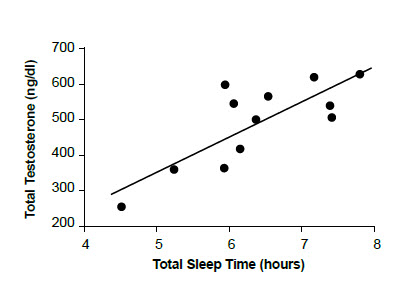 Not only does sleep increases testosterone, but it is also critical in managing cortisol. Cortisol is a stress hormone that is very destructive to testosterone levels when in excess. Make sure to focus on and improve the quality of your sleep. Reduce exposure to blue light in the evening, turn off your computers and cell phones at night, avoid caffeine in the afternoon and evenings, and take warm showers before bed.
Not only does sleep increases testosterone, but it is also critical in managing cortisol. Cortisol is a stress hormone that is very destructive to testosterone levels when in excess. Make sure to focus on and improve the quality of your sleep. Reduce exposure to blue light in the evening, turn off your computers and cell phones at night, avoid caffeine in the afternoon and evenings, and take warm showers before bed.
Sleep Increases Testosterone: How to Improve Sleep
- Sleep in complete darkness. No nightlights or glowing alarm clocks.
- Close wi-fi networks to shut down electromagnetic frequency waves
- Get exercise during the day. Melatonin can help as the hormone secreted by the pineal gland to bring on sleep and reset your body clock.
- Sleep in the cold . . . and naked! For centuries we slept in the cold and our bodies adapted to this natural state and testicles produce optimally when they are colder than your body temperature (why boxers are better than briefs).
- No computer or smart phone bright displays before bed and no blue lights. The blue light in many electronics impairs the pineal glands ability to function optimally.
- Simple carbs an hour or two before bed increases insulin levels which increases energy temporarily before you crash.
- Quality proteins, prior to sleep, and amino acids like L-tryptophan increases melatonin production during sleep.

Hormone Therapeutics aims to help people looking to improve and optimize their health through natural means or through the guidance of our physicians.
Don’t miss out our free weekly tips and news on Low T, hormone balancing, healthy living, nutrition and a lot more.
Want more?

Sign up today and Get our ebook, ‘Naturally Increase Your Testosterone Levels’ absolutely FREE.
How Sleep Increases Testosterone
Saleamp Design December 2nd, 2016
Posted In: Health & Wellness
Tags: amino acid, blackout, blue light, body clock, body temperature, cortisol, darkness, deep sleep, insulin, L-tryptophan, light, melatonin, morning erection, phone, pineal gland, protein, regenerative sleep, REM sleep, rest, sleep, Sleep Increases Testosterone, stress, testicles, testosterone therapy
Best Brain Health Exercises to Improve Cognitive Performance
Is Brain fog or memory loss impacting your life in a growing or worrisome way? Alzheimer’s and dementia are most frequent in 65+ men but cognitive issues like brain fog and forgetfulness are getting more are more frequently seen in younger men. These brain health and memory issues could be from Andropause.
What are the best brain health exercises?
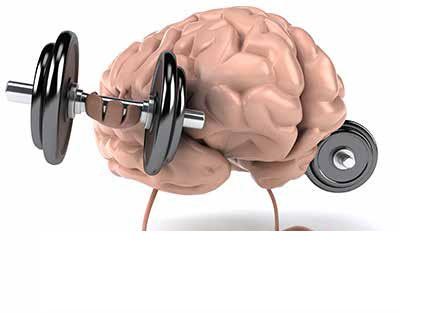
Exercise has always been seen as one of the key pillars to keep the body fresh and mind sharp and healthy as we age. But what type of exercise is best? Are they all the same?
Researchers examined the results of brain health on rats after running them through varied exercise programs. According to the researchers at the University of Jyvaska in Finland, below are the best brain health exercises to do.
- Running
- Weight Lifting
- High Intensity Interval Training (HIIT)
These three brain health exercises were identified and tracked across three groups of rats for a seven week period. The researchers injected the rats’ brains with a fluid that allowed them to track activity in the hippocampus of the rats. This activity identified the development of new brain cells anywhere in the brain but focused on the hippocampus because this is the area of the brain associated and used for learning and memory. The researchers hypothesized that whichever exercise stimulated new brain cell creation for use in learning or memory would help measure that exercise’s ability to stimulate brain growth, development and regeneration.
Brain Health Exercises Experiment Activities
Running: rats jogged on wheels in their cages
Weight Lifting: rats climbed walls with weights attached to their tails
HIIT: rats were placed on treadmills and forced to sprint/keep up at varying speeds and intervals
 Results
Results
Running was the winner!! The rats jogging on a where showed more neurogenesis than the other groups of rats. The HIIT rats experienced some improvement, however, the weight trained rats showed no improvement. The Finnish scientist concluded that “in order to promote [adult hippocampal neurogenesis] maximally, exercise should be aerobic and sustained.”
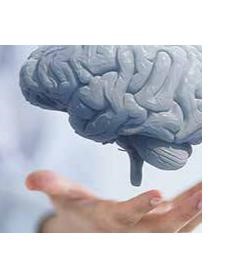 Maintaining a healthy brain healthy provides many other physical benefits. Mindful meditation has shown to reduce stress, heart rate and reduce inflammation in the body.
Maintaining a healthy brain healthy provides many other physical benefits. Mindful meditation has shown to reduce stress, heart rate and reduce inflammation in the body.
Testosterone helps regulate cortisone, which is a stress hormone, and affects the efficiency of our brain’s neurotransmitters. When men suffer from decreased testosterone levels they lose some ability to effectively regulate cortisol levels, which can cause neurotransmitters malfunction and lapses in memory. This is one of the reasons why cognitive issues are highly correlated with decreasing testosterone levels and you see higher incidence of cognitive impairment in men than you do in women.
 Testosterone Therapy to Improve and Maintain Brain Health
Testosterone Therapy to Improve and Maintain Brain Health
If these symptoms, cognitive issues, brain fog or memory issues are creeping up on you do not wait too long to start doing something about it. If they are affecting you, one potential solution is through testosterone and hormone replacement therapy. Contact Hormone Therapeutics and talk to our experts and find out if we can help you.
Hormone Therapeutics aims to help people looking to improve and optimize their health through natural means or through the guidance of our physicians.
Don’t miss out our free weekly tips and news on Low T, hormone balancing, healthy living, nutrition and a lot more.
Want more?

Sign up today and Get our ebook, ‘Naturally Increase Your Testosterone Levels’ absolutely FREE.
Best Brain Health Exercises to Improve Cognitive Performance
Saleamp Design November 29th, 2016
Posted In: Health & Wellness
Tags: brain fog, brain health, brain health exercises, cognitive, cortisol, exercises, impairment, inflammation, meditation, memory, memory loss, neurogenesis, neurotransmitters, stress, TBI, testosterone therapy, traumatic brain injury


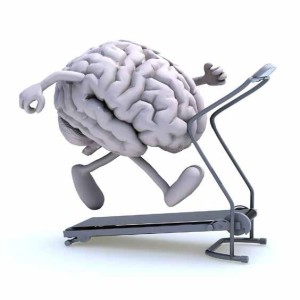 Results
Results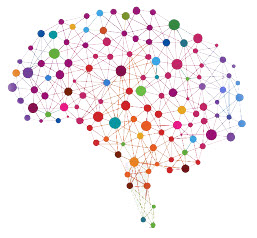 Testosterone Therapy to Improve and Maintain Brain Health
Testosterone Therapy to Improve and Maintain Brain Health